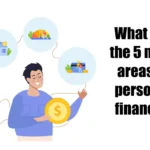Graduation day is an exciting milestone filled with celebrations and dreams for the future. However, as you toss your cap in the air, reality hits student loans and other financial responsibilities are waiting for you. It’s a mix of joy and anxiety, and you’re not alone in feeling this way.
Acknowledge the Challenge
Many graduates experience stress and overwhelm when it comes to managing their debt. It’s completely normal to feel this way. You’ve worked hard for your degree, but now you might be facing a mountain of loans, bills, and financial decisions. Acknowledging these feelings is the first step toward taking control of your finances.
Importance of Proactive Debt Management
Managing your debt effectively is crucial for your long-term financial health. How you handle your debt can significantly impact your credit score, which affects future loan opportunities like mortgages or car loans.
A good credit score opens doors to better interest rates and financial options. By being proactive about debt management, you set yourself up for a healthier financial future.
In this article, we’ll cover key areas to help you navigate the post-graduation financial landscape. We’ll explore different types of debt, how to create a budget that works for you, strategies for prioritizing repayment, and resources available for assistance. With the right tools and knowledge, you can confidently manage your finances and build a stable future.
Understanding Your Debt Profile
Getting a clear picture of your debt profile is an important step in managing your finances after graduation. Knowing exactly what you owe helps you make smart decisions about repayment and budgeting. Let’s break down the key areas you need to understand.
Identifying All Outstanding Debts
First, it’s essential to gather all the information about your outstanding debts. This includes student loans, credit cards, personal loans, and any other money you owe. Make a list of each debt, noting how much you owe, the interest rates, and when payments are due. Having everything organized in one place gives you a better understanding of your financial situation and helps you prioritize which debts to tackle first.
Types of Debt and Their Interest Rates
Next, let’s talk about the different types of debt. There are two main categories: secured and unsecured debt. Secured debt is backed by something valuable, like a car or a house. If you don’t pay it back, the lender can take that item.
Unsecured debt, like credit card debt, isn’t backed by collateral. High-interest debt, especially from credit cards, can add up quickly if you’re not careful. The higher the interest rate, the more money you’ll end up paying over time, so it’s important to focus on paying these off first.
Loan Terms and Repayment Schedules
It’s also important to understand some key loan terms. The principal is the original amount you borrowed. Interest is what you pay for borrowing that money. The loan term is how long you have to pay back the loan, while repayment schedules tell you how often payments are due. Knowing these terms helps you understand what you owe and when payments are expected.
Checking Your Credit Report
Finally, don’t forget to check your credit report. This is crucial for making sure everything is accurate and spotting any potential issues that could hurt your credit score. You can get free credit reports from AnnualCreditReport.com once a year from each of the three major credit bureaus. Regularly reviewing your report helps you catch mistakes early and take action to fix them.
Creating a Budget and Tracking Expenses
Creating a budget is a key step in managing your money after graduation. It helps you take control of your finances, manage debt, and make smart financial choices. Let’s dive into how you can create a budget and track your expenses effectively.
Importance of Budgeting
Budgeting is really important for keeping your finances in check. It shows you where your money is going and helps you prioritize what to spend on. When you have a clear budget, you can make better choices about your money, especially when dealing with debt. A good budget gives you peace of mind and helps reduce financial stress.
Tracking Income and Expenses
To create an effective budget, you need to track your income and expenses. There are many easy ways to do this. You can use budgeting apps like Mint or YNAB, which make it simple to see your spending habits. If you prefer something more hands-on, try making a spreadsheet to log your expenses. You could also keep a notebook to write down what you spend each day. Choose the method that feels right for you.
Categorizing Expenses (Needs vs. Wants)
A big part of budgeting is figuring out what are needs versus wants. Needs are the essentials, like rent, groceries, and bills. Wants are things that aren’t necessary, like eating out or buying new clothes. By knowing the difference, you can free up more money for paying off debt. Focus on covering your needs first, then set aside some cash for wants while keeping your financial goals in mind.
Setting Realistic Spending Limits
Finally, it’s important to set realistic spending limits. Look at how much money you make and what debts you have to decide how much you can spend each month. Make sure your budget includes both necessary expenses and a little fun without going overboard. It’s all about finding a balance that works for you while making sure you can meet your financial responsibilities.
Prioritizing Debt Repayment Strategies
When it comes to managing debt, having a solid repayment strategy is essential. Two popular methods can help you tackle your debt effectively: the Debt Snowball Method and the Debt Avalanche Method. Let’s explore these strategies and find the best fit for you.
The Debt Snowball Method
The Debt Snowball Method focuses on paying off your smallest debt first. This approach can be very motivating. By knocking out smaller debts quickly, you’ll feel a sense of accomplishment that keeps you going. Once the smallest debt is paid off, you move on to the next smallest one. This method builds momentum and helps you stay motivated as you see your debts disappearing one by one.
The Debt Avalanche Method
On the other hand, the Debt Avalanche Method takes a different approach. This method focuses on paying off the debt with the highest interest rate first. By doing this, you save money on interest payments over time. While it may take longer to pay off your first debt, this strategy can save you more money in the long run. If you’re looking to minimize total interest paid, this might be the right choice for you.
Choosing the Right Strategy for Your Situation
Choosing the right repayment strategy depends on your financial personality and debt profile. If you thrive on quick wins and motivation, the Debt Snowball Method might be best for you. However, if you’re more focused on saving money and reducing interest costs, consider the Debt Avalanche Method. Think about what will keep you motivated and what aligns with your financial goals.
Making Extra Payments (Even Small Amounts)
No matter which method you choose, making extra payments can have a big impact. Even small amounts can help reduce your debt faster. If you find yourself with some extra cash like from a side job or a gift—consider putting it toward your debt. Every little bit helps and can make a difference in your overall repayment journey.
By prioritizing your debt repayment strategies, you’ll take control of your personal finance situation and move closer to financial freedom.
Exploring Resources and Seeking Assistance
Navigating the world of student loans can feel overwhelming, but there are plenty of resources available to help you manage your debt. Let’s explore some options for student loan repayment, credit counseling, and financial advice that can make your journey easier.
Student Loan Repayment Options (Federal and Private)
When it comes to repaying student loans, understanding your options is crucial. Federal student loans offer several repayment plans. For example, the Standard Repayment Plan has fixed monthly payments over ten years.
If you need lower payments, consider an Income-Driven Repayment Plan, which bases your payments on your income and family size. This can even mean paying as little as $0 a month.
For private student loans, options can vary by lender. Many private loans offer immediate repayment, where you start paying principal and interest right away. Others might allow for interest-only payments while you’re in school. If you’re feeling overwhelmed, consolidating or refinancing your loans can also help simplify your payments or lower your interest rates.
Credit Counseling Agencies (Non-Profit)
If you’re looking for guidance on managing your debt, consider reaching out to a non-profit credit counseling agency. These organizations provide free or low-cost advice on budgeting and debt management. They can help you create a plan tailored to your needs. Reputable agencies like the National Foundation for Credit Counseling (NFCC) can connect you with certified counselors who are ready to help.
Financial Advisors (For More Complex Situations)
For those with more complex financial situations, consulting a qualified financial advisor can be beneficial. A financial advisor can provide personalized guidance based on your unique circumstances, helping you navigate everything from student loans to investments. They can help you create a comprehensive financial plan that aligns with your goals and helps you achieve financial stability.
Exploring these resources and seeking assistance, you’ll be better equipped to manage your personal finance journey and tackle your student loan debt with confidence. Remember, you don’t have to do this alone—there are plenty of people and tools available to support you along the way.
Building Positive Financial Habits for the Future
As you focus on paying off debt, it’s important to start building positive financial habits for your future. Developing these habits now can set you up for long-term success and help you achieve your financial goals. Let’s explore some key areas to consider.
Importance of Saving and Investing (Even While Paying Off Debt)
Even while you’re tackling debt, saving and investing should still be on your radar. You don’t have to wait until all your debt is gone to start saving. Even small amounts can add up over time. Consider setting aside a little money each month for savings or investments. This not only helps you build a financial cushion but also teaches you the importance of managing money wisely.
Building an Emergency Fund
One of the most crucial steps in personal finance is building an emergency fund. This fund acts as a safety net for unexpected expenses, like car repairs or medical bills. Aim to save at least three to six months’ worth of living expenses in your emergency fund. Having this cushion can prevent you from falling deeper into debt when life throws you a curveball.
Setting Long-Term Financial Goals
As you work on your finances, it’s also a great time to think about your long-term financial goals. What do you dream of achieving in the future? Whether it’s homeownership, retirement, or traveling the world, setting clear goals helps keep you motivated. Write down your goals and break them into smaller, achievable steps. This way, you’ll have a roadmap to follow as you progress toward your dreams.
By focusing on building positive financial habits now, you’ll create a strong foundation for your future. Remember, it’s all about balance, managing debt while also saving and planning for what’s ahead will lead to greater financial freedom and peace of mind
Taking Control of Your Financial Future
As we wrap up, let’s quickly recap the key steps for managing your debt effectively. First, understand your debt profile by listing all your outstanding debts. Next, choose a repayment strategy that works for you, whether it’s the Debt Snowball or Debt Avalanche method. Create a budget to keep track of your income and expenses, and explore resources that can help you. Finally, start building good financial habits like saving and investing, even while you’re paying off debt.
Managing debt might feel overwhelming, but it’s definitely possible with the right knowledge, planning, and discipline. Remember, you have the power to take control of your financial future, By following the steps we discussed, you can make smart choices that lead to a more stable financial life.
Now it’s time to take action. Start putting these strategies into practice today. Whether it’s making a budget, looking into repayment options, or setting up an emergency fund, every little step helps. Take charge of your personal finance journey and enjoy the path to financial freedom.
FAQ
What is personal finance?
Personal finance involves managing your money, including budgeting, saving, investing, and planning for future financial goals.
Why is budgeting important?
Budgeting helps you track your income and expenses, allowing you to make informed decisions and manage your finances effectively.
What are the key components of personal finance?
The key components include income, expenses, savings, investments, and financial security.
How can I start saving money?
Begin by creating a budget to track your spending. Identify areas where you can cut back and set aside a portion of your income for savings.
What is an emergency fund, and why do I need one?
An emergency fund is savings set aside for unexpected expenses. It provides financial security and helps prevent debt during emergencies.
What are the different types of student loan repayment plans?
Federal student loans offer options like Standard Repayment, Income-Driven Repayment, and Graduated Repayment plans to suit different financial situations.
Should I pay off debt or save for retirement first?
It depends on your situation. Focus on high-interest debt first while also contributing to retirement savings if possible to benefit from compound interest.
How often should I check my credit report?
It’s a good idea to check your credit report at least once a year to ensure accuracy and identify any potential issues.
What is the 50/30/20 rule in budgeting?
The 50/30/20 rule suggests allocating 50% of your income to needs, 30% to wants, and 20% to savings and debt repayment.
How can I improve my credit score?
Pay bills on time, keep credit card balances low, avoid opening too many new accounts at once, and regularly check your credit report for errors.








